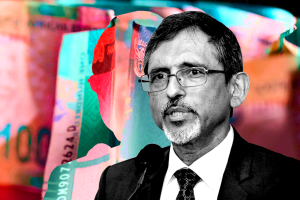South Africa’s biggest bank warns of new scams targeting customers

Over the past year, South Africans have faced increased risk when it comes to becoming a victim of fraud, according to data from the Southern African Fraud Prevention Service (SAFPS).
“This is particularly concerning given the economic climate that we are currently facing,” said Manie van Schalkwyk, CEO of the SAFPS. “Consumers are facing a significant cycle of high inflation and are looking for ways to make ends meet. This makes them increasingly vulnerable to scams and schemes which are being carried out by highly motivated, highly skilled fraud syndicates.”
Standard Bank meanwhile, has issued a note requesting customer to be aware of the following three scams it says are becoming more common:
Fake Holiday deal scam
- Fraudsters aim to exploit you by advertising incredible holidays or timeshare deals, that turn out to be fake.
- The offers are often heavily discounted or offered online via social media websites or other websites.
- Once you have made the payment through EFT or push payments you’ll never get any confirmation details of the holiday.
Fake Goods scam
- Fraudsters aim to scam you by advertising great deals that are very appealing.
- They’ll put you under pressure to quickly make a full or part payment in order to secure the deal – But the offer is fake and you’ll never receive the goods.
Fake vehicle scam
- This scam is similar to the others in that the fraudster will advertise an incredible deal on a car that doesn’t exist.
- They will pressure you into paying a deposit or the full asking rate by claiming there are other interested buyers, or that the sale is urgent due to sickness or emigration.
The SAFPS has also alluded to scams to be aware of. It has noticed an increase in the money mule scam – when a person approaches someone else and asks them if they can use their account to send money to a relative in another country.
“While this should immediately be a red flag, you will be surprised at how many people willingly comply in the hope that they can be of assistance,” said Van Schalkwyk. Unfortunately, this then opens the door for fraudsters to take significant advantage of their victim.
When it comes to the misuse of accounts through fraudulent conduct, the risk of money muling has increased by 97% over instances recorded in 2021.
“This is a significant problem and not only limited to South Africa. Money muling is a significant global risk. Reports from Cifas in the UK point out that money muling funds illegal activity such as money laundering, terrorism and human trafficking. Obviously, this is concerning, particularly within the South African content,” said Van Schalkwyk.
Impersonation has always been a significant crime is South Africa as fraudsters prey on their victims through phishing, smishing and vishing.
“Impersonation increased by 264% for the first five months of the year compared to 2021 and could be linked to recent major data breaches. The various data breaches have all highlighted the vulnerability of personal information and how easily accessible they are to the motivated criminal,” said Van Schalkwyk.
South Africa has one of the highest reported unemployment rates in the world. Current statistics from Stats SA reports that the official unemployment rate is 34.5%. “In an effort to increase employability, we are seeing an increase in false qualifications which has increased by 158% over the cases reported in 2021,” said SAFPS.
Gauteng is the economic hub of the country and is the province which has the highest fraud stats. The SAFPS points out that the province makes up 62% of the country’s total fraud incidents and that the number of fraud incidents that were recorded in 2022 increased by 117% over the number of incidents reported in 2021.
KwaZulu-Natal contributed 18% of the fraud incidents in 2022 and the SAFPS points out that the number of incidents reported this year increased by 106% over those recorded in 2021.
“The interesting statistic for the SAFPS is the increase in the Western Cape,” said Van Schalkwyk who points out that there are visible signs of an increase of fraudulent activity in this province. The Western Cape made up 8% of the country’s total fraud incidents and there was a 133% increase over the number of fraud incidents reported in 2021.



















